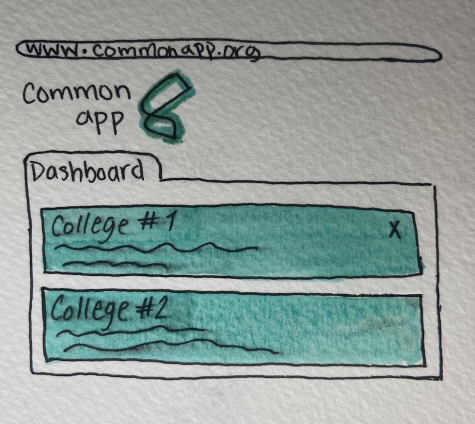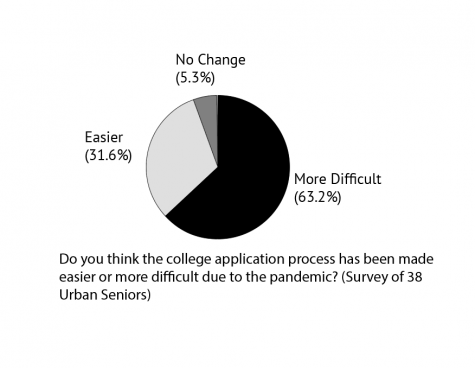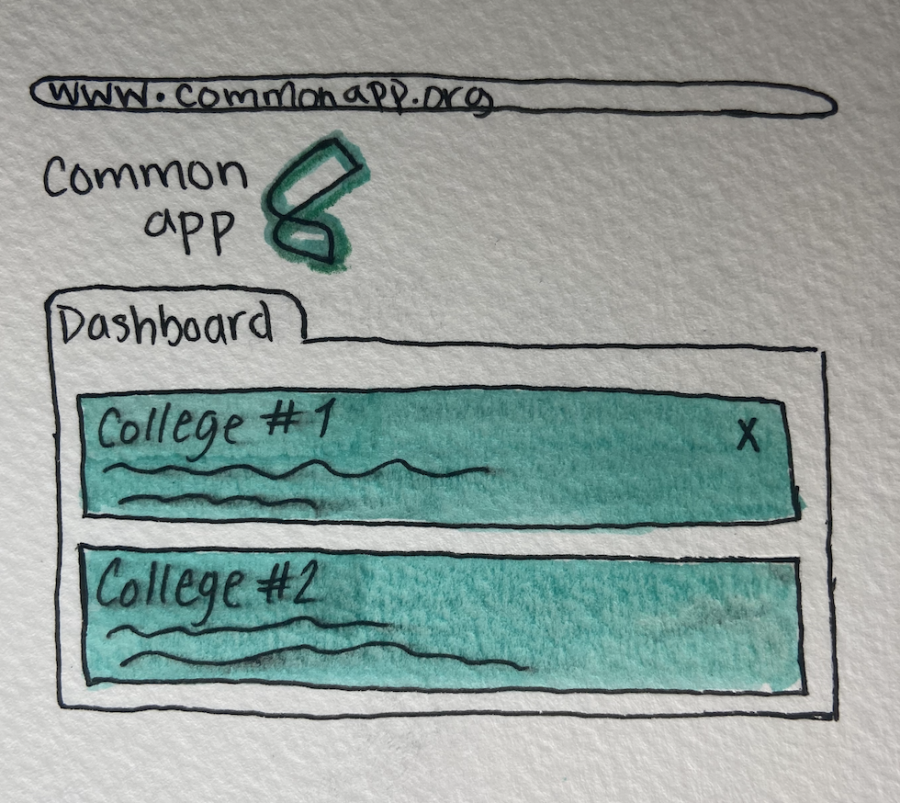The 2020-21 college application process: applying during a pandemic


Each year an estimated 69.8% of high school seniors across the United States begin their college application process; it is the culmination, for many, of four years of challenging classes, extracurriculars, and ACT/SAT testing. The process is known for being time-consuming, stressful, and exhausting for applicants no matter the circumstances. However, the current COVID-19 pandemic, which struck the United States in March as many seniors were planning college visits and beginning testing, has exacerbated this already difficult process for students.
Urban seniors have been feeling the effects of this unprecedented application process along with the rest of the world. In fact, in a survey of 38 Urban seniors conducted by the Urban Legend, 63.2% indicated that the process was made more difficult due to the coronavirus pandemic.
Urban college counselor Elizabeth Harris touched on some of the biggest factors she believes contribute to these results. “I think one of the most obvious ones that started for the senior class in junior year would have been the inability to visit perhaps as many colleges since colleges, for the most part, had to stop offering campus tours and everything,” she said.
With stay-at-home orders put in place across the country in March and travel made challenging even now, getting to know colleges in person has become virtually impossible. Instead, many colleges have begun providing virtual tours and information sessions for prospective students, ranging from YouTube videos to interactive options that are meant to replace in-person tours and give students a chance to get to know their campuses.
Several students have found these alternatives useful, while also expressing a preference for in-person options. Madeleine Nordahl ‘21 said, “[These virtual tours] obviously can’t compare. I’ve been on some in-person tours before quarantine and I definitely think that they’re better because you can have a general feel for the school itself. But I honestly don’t think it’s that tragic since there is that alternative available.”
Other Urban students have felt the impact of losing this component of their college search more strongly. Cassie Eng ‘21 said, “I feel like it makes it harder to connect to the school. For me personally, I think that most colleges, if not all of them, have pretty strong academics. Like you’ll be able to find most classes or majors, so what makes that college stand out is the environment and the one-on-one interactions I would have with the current students walking around the campus.” She added, “I think I’m less excited about the schools that I wasn’t able to visit because I’m missing that component.”
Another unfortunate result of the pandemic is the loss of the natural hallway conversation between Urban’s college counselors and students that is usually commonplace during the college application process. While Zoom meetings and virtual U Periods have become a useful replacement for in-person meetings, “I [expected] that I could just pop into their office, ask questions when I have them at the ready, and make it feel like the relationship is developing more naturally,” said Eng.
Harris also recognizes the effect of the lack of in-person relationships between counselors and students during the process, however, she emphasizes that virtual school also provides new ways to connect. “It looks different than it would in person, of course, since you can’t just stop somebody in the hallway, but you might be able to connect with a student by email and say, ‘hey, can you meet for five minutes after B period?’” she said.
Still, many students acknowledge the unexpected benefits of the unique circumstances of this year’s application process. For students with long commutes and time-consuming extracurricular activities, being at home has provided them with more time to write essays and research schools without the added stress of other commitments. Urban’s transition to two nights of homework per week, per class, has also contributed to this. “I personally had a lot of extracurriculars I did before quarantine and I know I’d be struggling if I still had to do those,” said Nordahl.
No matter the circumstances Urban seniors have had to withstand, they, along with the rest of prospective college students, have adapted. With early applications already submitted and regular decision deadlines looming ahead, seniors can take pride in their work and flexibility during this unprecedented time. Harris echoed this sentiment saying, “Your class has had a tremendous amount of work and has had to pivot very quickly over the past couple of months. So we’re super proud of what you guys have done so far. I think you’ve been really thoughtful throughout this whole process.”












